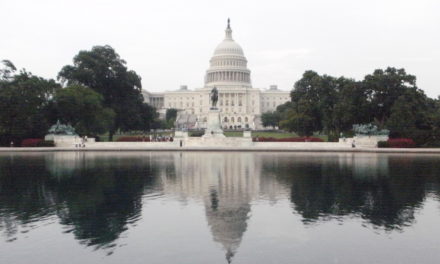Well, it’s that time of the decade again. The political polarization of our time has hit its quadrennial peak. Anyone who pays attention to American politics knows that Congress is gridlocked and the two parties consistently refuse to work together but the divisiveness in our country is not only a result of the two-party system or because this is an election year. The problem of polarized politics is rooted in both the methods in which candidates and strategists try to win national votes and how voters examine small parts of a candidate’s platform.
For months the Democrats have tried to make women’s health an issue in the campaign in order to gain votes from the female electorate. Republicans have lamented that they cannot win the Hispanic vote and worry that it will jeopardize the future of their party. Democrats feel confident that the majority of African Americans in the country will vote for them while Republicans have to spend very little time convincing Evangelical voters to support their cause.
The two major parties have butchered the country into blocs, each with its own particular interests: Jewish voters are concerned with Israel, seniors listen closely to the Medicare debate, Veterans are linked to national security, the LGBT community votes according to positions on gay marriage, and students rally behind a platform that includes federal aid. The list goes on and encompasses each citizen of the United States multiple times. This view falsely assumes that voters have one-dimensional identities and can be counted on to vote according to how their peers do.
This process of candidates working to attract the votes of specific demographics is considered conventional wisdom in modern politics and has been employed for several election cycles. Not only is the logic flawed, but it also weakens the unity as well as resolve of our nation and it inhibits national leaders from governing for the best interests of the nation. In essence, politicians capitalize by pitting the interests of one demographic over a nation and it is unacceptable.
The result is multifaceted: neither candidate will carry a mandate come November, which inhibits those elected officials from carrying out many of their proposals. The electorate will also feel disillusioned with whoever is elected and the cycle will repeat itself as fewer people become satisfied with their representation in the national dialogue.
In the current presidential election, this mindset has predictably resulted in a race that is a coin toss, as are many other national elections. In the days of landslide elections, namely Lyndon B. Johnson’s mandate for the “Great Society” in 1964 and the “Reagan Revolution” of the 1980s, or Franklin D. Roosevelt’s unprecedented four blowout elections and Dwight Eisenhower’s repeated landslide elections, such a consensus brought about greater unity and a stronger determination to help solve the nation’s problems.
What voters in the United States have failed to realize is that they too are responsible for the political polarization. Voters want politicians to cater to their specific interests rather than to govern for the benefit of the entirety of the country. As a nation, we have been quick to judge candidates for their willingness to divide the electorate but have failed to examine how individuals enable this self-defeating behavior.
If Americans want a political system that transcends the broken pettiness of the current one, it is necessary to look beyond their immediate interests when they contradict what benefits the country. Bill Clinton reconciled the need for a balanced and consistent agenda as he has said, “you can’t love the jobs and hate the job creators.”
Julián Castro did the same as he declared at the Democratic National Convention, “you can’t be pro-business without being pro-education.” The sentiment is best described, however, by John F. Kennedy who urged, “and so, my fellow Americans: ask not what your country can do for you-ask what you can do for your country.”
Ross Fogg is an College junior from Fayetteville, Ga.
The Emory Wheel was founded in 1919 and is currently the only independent, student-run newspaper of Emory University. The Wheel publishes weekly on Wednesdays during the academic year, except during University holidays and scheduled publication intermissions.
The Wheel is financially and editorially independent from the University. All of its content is generated by the Wheel’s more than 100 student staff members and contributing writers, and its printing costs are covered by profits from self-generated advertising sales.





“nuf said”, but how do we change the mentality Mr. Fogg refers to? That is the question.